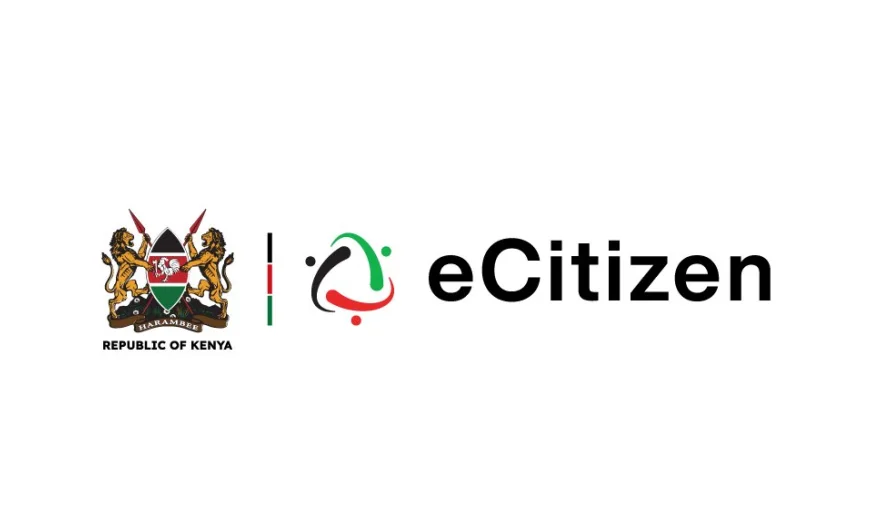School Fees Paid Through Ecitizen Will Be Automatically Transferred To Schools

The Ministry of Education’s directive to register each school’s bank account with eCitizen has received affirmation from James Ayugi, the founder and CEO of Webmasters Kenya Ltd. He emphasized the necessity for accountability in fee payments, citing the existence of ghost schools and students. According to James, every school and student is registered with a bank account and a student number, respectively.
James explained that the eCitizen platform enables real-time access to payment information when fees are paid. The platform ensures that schools can verify if a student has settled their fees. He clarified that the settlement process to the school’s bank account is automated, with the government notifying the school upon receiving the funds.
In an interview with Spice FM, James highlighted the purpose of this directive as a means to track school collections and eliminate additional, unauthorized costs imposed on parents. He stressed that digitization would eradicate such issues. James elaborated on the role of eCitizen as a central bureau, streamlining information recording and release. He emphasized that the Treasury gains visibility into the collected amount per school, facilitating accurate capitation disbursement and preventing fraud.
When discussing the eCitizen system, James likened it to a central pay bill with a unique till number for each school. The National Treasury, acting as a central administration, monitors the number of tills in each school, ensuring transparency in fund allocation.
Despite the nationwide conversation sparked by the Ministry’s directive, the High Court in Nairobi extended orders blocking its implementation. Justice Chacha Mwita clarified that the extension would not prejudice the government.
Makueni Senator Dan Maanzo has raised concerns about the credibility of the eCitizen platform, a government initiative aiming to serve as a one-stop-shop for accessing services through online payments. Maanzo, expressing his views on Citizen TV’s Daybreak show, criticized the platform, asserting that it lacks a clear policy for implementation and has not undergone parliamentary debate or public participation.
According to Maanzo, President William Ruto’s attempt to curb corruption through the platform is destined to fail, as the lack of adherence to procurement laws raises suspicions of possible ownership by the president himself. In a reported speech, Maanzo stated, “Unfortunately, the president has failed completely; he has not followed the procurement law. He is part of the corruption system; he knows it; he should start cleaning it himself.”
The senator questioned the legitimacy of a private company running eCitizen, emphasizing the need for transparent procurement procedures and efficiency. He highlighted the absence of laws governing the platform and criticized it as a monopoly that cannot be imposed on the people without proper legal scrutiny.
In December 2023, Treasury Cabinet Secretary Njuguna Ndung’u issued a directive for all government services to be integrated into the eCitizen platform, with associated access fees. The proposal faced opposition, with critics highlighting its potential drawbacks.
In February 2024, the High Court in Nairobi temporarily halted a directive requiring parents to pay school fees through eCitizen. The court suspended the circular after a petition by Dr. Magare Gikenyi challenged the initiative as illegal, citing violations of principles of good governance. National school principals received a memo on January 31, 2024, from Education Principal Secretary Belio Kipsang, directing them to share school bank account details by February 6, 2024. The court suspension by Judge Chacha Mwita, effective until February 13, 2024, raises questions about the future of this directive.
Furthermore, it was revealed that some Kenyan universities have adopted the eCitizen platform for cafeteria service payments. Public Service, Performance, and Delivery Management Cabinet Secretary Moses Kuria hinted at plans to extend the use of the platform to manage music copyrights and royalties.
Tana River Senator Danson Mungatana has rejected criticism from fellow legislators regarding the government’s decision to centralize payment for all its services on eCitizen, the online portal for State services, using a single PayBill number. President William Ruto’s directive last year mandated school fee payments through eCitizen, a move that was later halted by the High Court and has sparked controversy over service charges and convenience fees.
During a panel discussion on Citizen TV’s Daybreak program, Mungatana defended the system as a transformative initiative and urged his fellow lawmakers to present constructive solutions rather than mere complaints. He acknowledged the system’s imperfections, citing Senator Stewart Madzayo’s legal challenge questioning additional charges for payments.
However, Mungatana emphasized that legislators with oversight responsibilities, such as the public accounts and investment committees, should focus on proposing solutions. He expressed personal interest in refining the system for its potential as a game changer.
Senator Madzayo has taken legal action to prevent Pesaflow, the private company handling eCitizen payments, from collecting convenience fees. Madzayo argues that Pesaflow’s role and ownership remain unknown, deeming the convenience fee an unfair and unconstitutional burden on taxpayers.
Mungatana countered criticisms by highlighting the system’s efficacy in addressing government fund leakages, asserting that the introduction of the consolidated PayBill number has resulted in significant daily savings for the government. He mentioned a resistance period when agencies had to adhere to the new system or face resignation.
